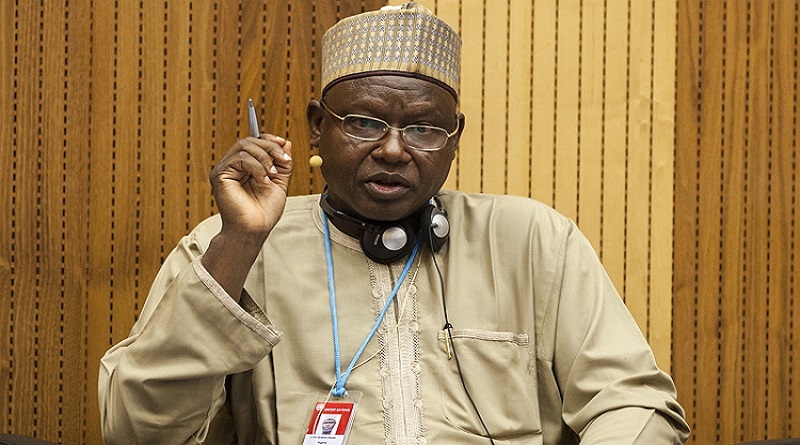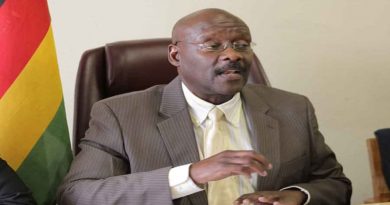20 years after, SRADev-Nigeria wants FG to ratify Bamako Convention
Ahead of the Second Meeting of the Conference of the Parties of the Bamako Convention (Bamako COP2) that will take place in Abidjan, Cote d’Ivoire from 28-30th of this month, a non-government organisation, Sustainable Research and Action for Environmental Development (SRADev Nigeria) has called on the federal government of Nigeria to ratify and commence implementation of the Convention.
The Bamako Convention on the ban on the import into Africa and the Control of Transboundary Movement and Management of Hazardous Wastes within Africa is a treaty of African nations prohibiting the import of any hazardous (including radioactive) waste.
The Convention was negotiated by twelve nations of the Organisation of African Unity (now African Union) at Bamako, Mali in January, 1991, and came into force in 1998. The Second Meeting of Conference of the Parties of the Bamako Convention (Bamako COP2) will take place in Abidjan, Cote d’Ivoire from 28-30 January 2018.The Conference will be held under the theme: The Bamako Convention: a platform for a pollution-free Africa. To date the Convention has 29 Signatories and 25 Parties. Regrettably, Nigeria is yet to ratify and implement this Convention since signatory in 1998.
SRADev Nigeria’s Executive Director, Leslie Adogame, said: “It is most worrisome that Nigeria who should play a lead role in the continent has inadvertently lagged behind 29 other countries in Africa”. “Nigeria’s delay in ratifying the Bamako Convention after 20 years of its coming into force is a bad omen for a toxic-free country and continent; it is simply not enough to sign the Convention without ratification to implement it”.
Senior Programme Officer, SRADev, Faith osa-Egharevba, said, “Nigeria’s continued ‘observer status’ since COP1 in 2013 simply means no voice in the continent’s negotiation and on-going effort to implement the treaty”.
Globally, “Environmentally sound management of hazardous wastes” is the subject of Chapter 20 of Agenda 21. Effective control of the generation, storage, treatment, recycling and reuse, transport, recovery and disposal of hazardous wastes is, according to Agenda 21, “of paramount importance for proper health, environmental protection and natural resource management, and sustainable development.” Among the overall targets of Chapter 20 are the following:
• ratifying and full implementation of the Bamako Convention on the Ban of the Import into Africa and the Control of Transboundary Movement and Management of Hazardous Wastes within Africa; and
• eliminating the export of hazardous wastes to countries that prohibit such imports.
In Africa, the impetus for the Bamako convention arose also from the realization that many developed nations were exporting toxic wastes to Africa (Koko case in Nigeria, Probo Koala case in Ivory Coast…). Moreover, ratification and implementation of the Convention has become expedient since Nigeria very recently signed pact with Russia to build and operate a nuclear power plant despite concerns about poor quality control, safety and waste management.
Furthermore, in ‘The Future We Want’, the outcome document of Rio+20 (2012), Nigeria reaffirmed her commitment to achieve, by 2020, the sound management of chemicals throughout their life cycle and of hazardous waste in ways that lead to minimization of significant adverse effects to human health and the environment, as set out in the Johannesburg Plan Of Implementation (JPOI 2002).
Nigeria has consistently reiterated her diplomatic support for the UN in all its efforts, including the attainment of the 2030 Agenda for Sustainable Development. President Mohammed Buhari has since 2015 (70th session) been honoured to address the United Nation General Assembly (UNGA) each year at which he severally re-affirmed Nigeria’s commitment to the Sustainable Development Goals (SDGs) bold steps to transform our world. ‘Charity they say must begin at home’. “We urgently call on the Federal Government through the Federal Ministry of Environment to match words with action away from ‘global diplomatic rhetoric’ to ratify Convention before the COP2 meeting” said Adogame.




